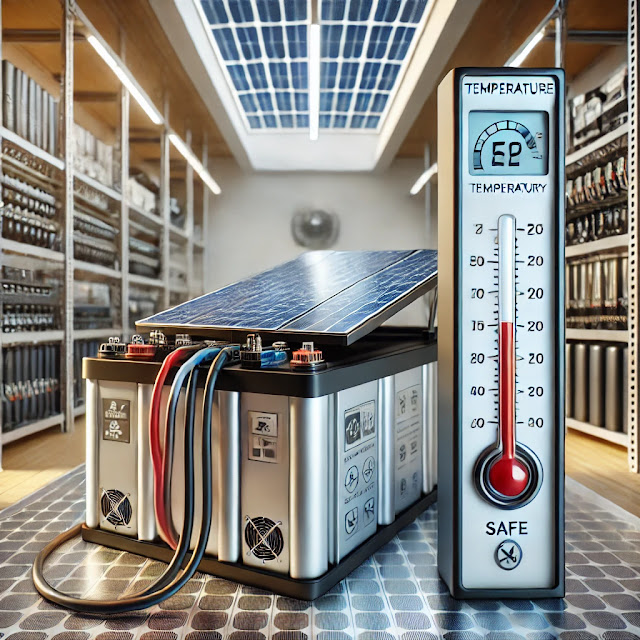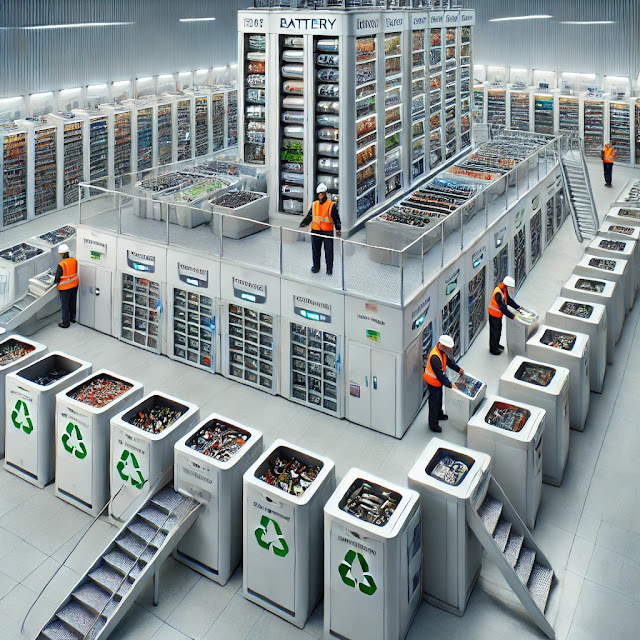
Lithium-ion batteries have become increasingly popular in residential solar power systems due to their high energy density, long lifespan, and low maintenance requirements. However, like any advanced technology, they come with safety considerations that must be addressed to ensure reliable and risk-free operation.
Here we have covered 8 essential safety tips for using lithium-ion batteries in solar power systems at home, helping you maximize their performance while minimizing risks.
1. Choose High-Quality, Certified Batteries
When investing in a lithium-ion battery for your solar system, always choose high-quality products from reputable manufacturers. Look for certifications like:
- UL 1642 (Lithium Battery Safety Standard)
- IEC 62133 (International Standard for Lithium Batteries)
- UN 38.3 (Transport Safety Certification)
Certified batteries are tested for safety under various conditions, reducing the risk of overheating, short circuits, and fire.
2. Ensure Proper Installation
Proper installation of lithium-ion batteries is critical for safe operation. It’s best to hire a professional installer with experience in solar power systems and battery storage.
Installation Tips:
- Use the correct wiring and connectors.
- Install batteries in a well-ventilated, temperature-controlled area.
- Keep the battery away from direct sunlight and heat sources.
3. Maintain Optimal Temperature
Lithium-ion batteries are sensitive to extreme temperatures. Excessive heat can degrade their lifespan and increase the risk of thermal runaway (a condition where the battery overheats uncontrollably).
Temperature Guidelines:
- Optimal operating temperature: 20°C to 25°C (68°F to 77°F)
- Avoid charging the battery if the ambient temperature is below 0°C (32°F) or above 45°C (113°F).
4. Use a Battery Management System (BMS)
A Battery Management System (BMS) is a critical component of lithium-ion battery safety. It monitors and controls key parameters like voltage, temperature, and state of charge (SoC), preventing overcharging, deep discharge, and overheating.
A BMS protects the battery from damage and ensures safe, efficient operation by automatically disconnecting it during unsafe conditions. Never buy a lithium ion battery for a solar system installation without a BMS.
5. Avoid Overcharging and Deep Discharging
Overcharging and deep discharging are two major factors that can shorten the lifespan of lithium-ion batteries and increase safety risks.
Best Practices:
- Use a charge controller to regulate the charging process.
- Keep the state of charge (SoC) between 20% and 80% for optimal performance and longevity.
6. Keep Batteries Away from Flammable Materials
Although lithium-ion batteries are generally safe, there’s always a small risk of fire due to thermal runaway or internal short circuits.
Safety Tips:
- Install batteries in a fire-resistant enclosure.
- Keep the surrounding area free of flammable materials.
- Have a fire extinguisher nearby, specifically one rated for electrical fires (Class C or multipurpose ABC extinguisher).
7. Regular Inspection and Maintenance
Periodic inspection and maintenance are crucial for identifying potential issues before they become serious.
Inspection Checklist:
- Check for any physical damage, swelling, or leakage.
- Ensure all connections are tight and corrosion-free.
- Monitor battery performance using the BMS or a monitoring app.
8. Proper Disposal and Recycling
Lithium-ion batteries should never be thrown away with regular household waste. They contain materials that can be hazardous if not handled properly.
Disposal Tips:
- Take old or damaged batteries to a certified recycling center.
- Follow local regulations for the disposal of electronic waste.
Lithium-ion batteries are an excellent choice for residential solar power systems, offering efficiency, reliability, and long life. However, following proper safety protocols is essential to ensure their safe and optimal operation. By choosing certified batteries, ensuring proper installation, and maintaining them regularly, you can enjoy the benefits of clean energy without compromising safety.







